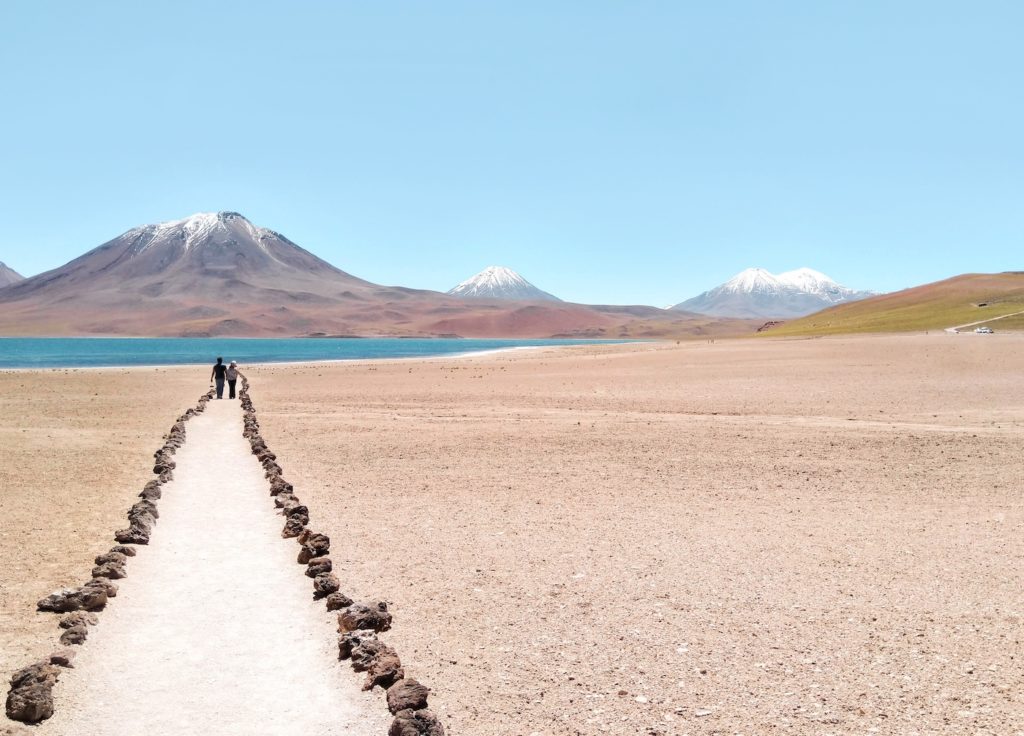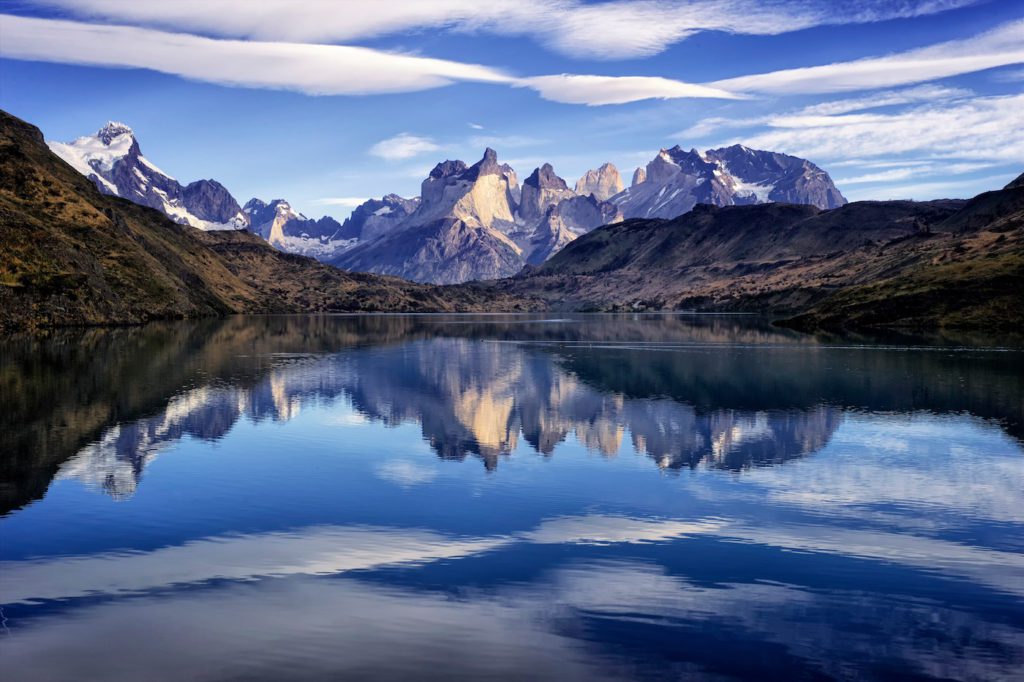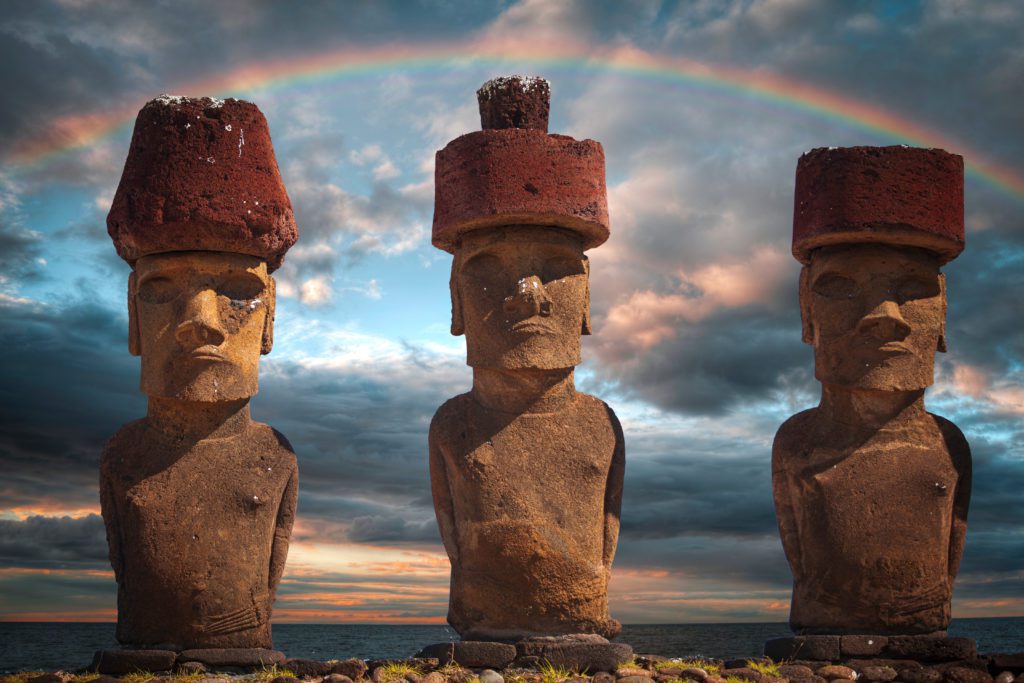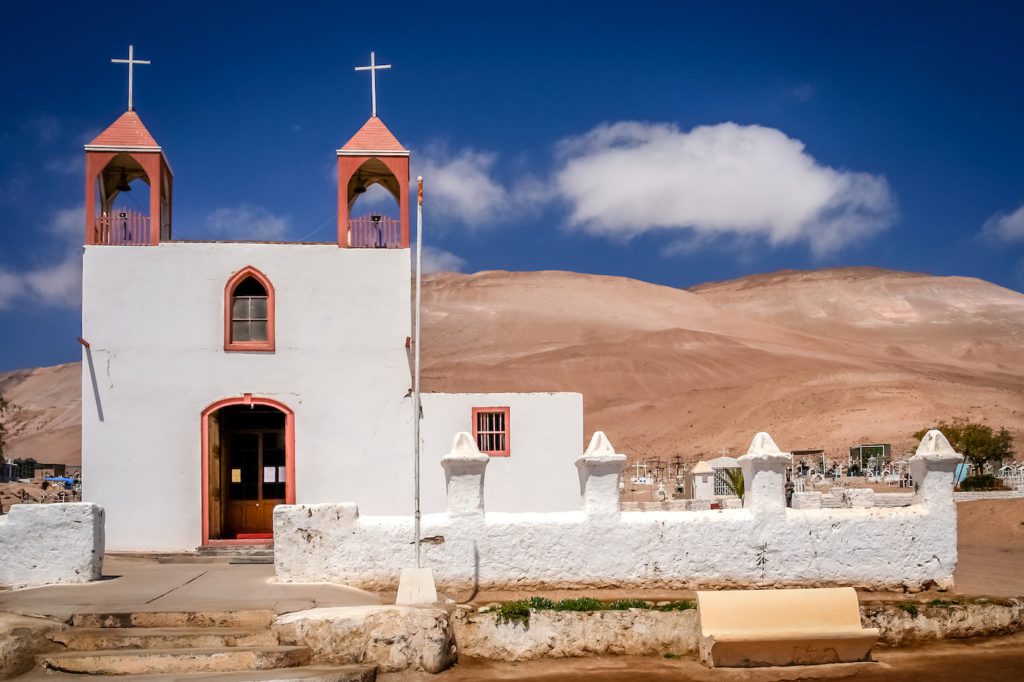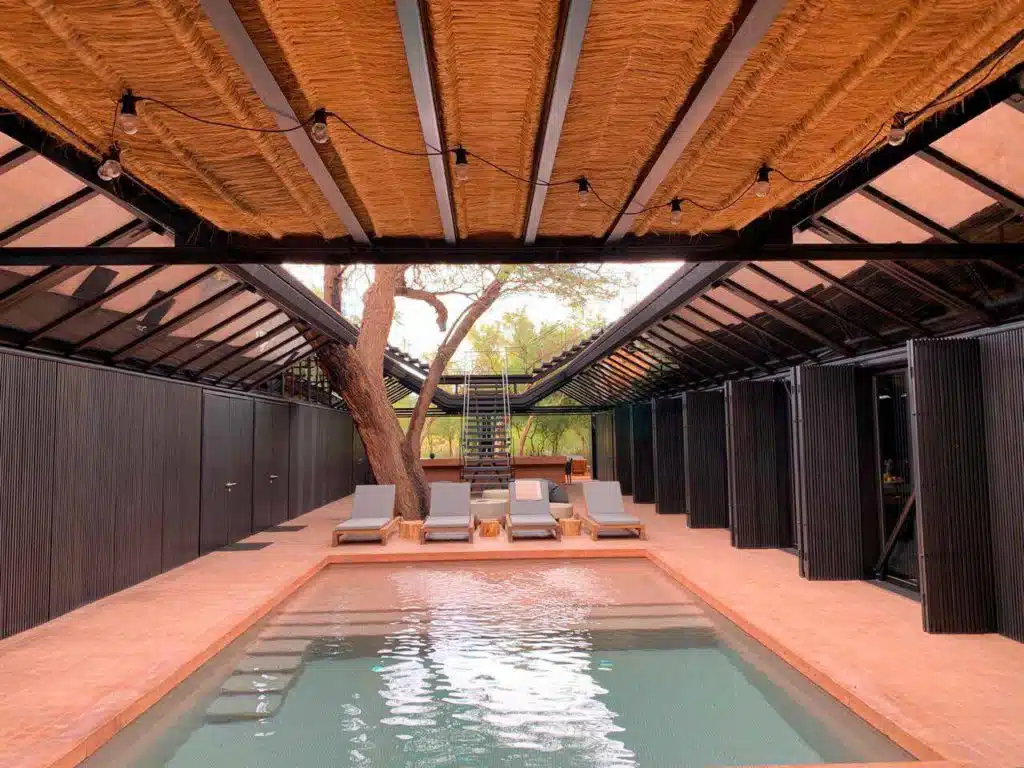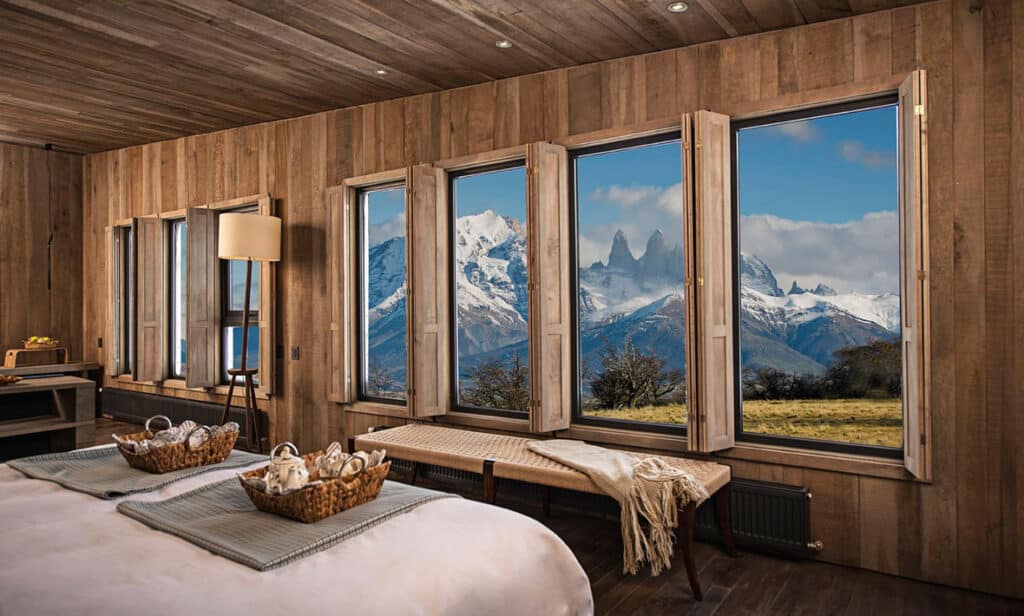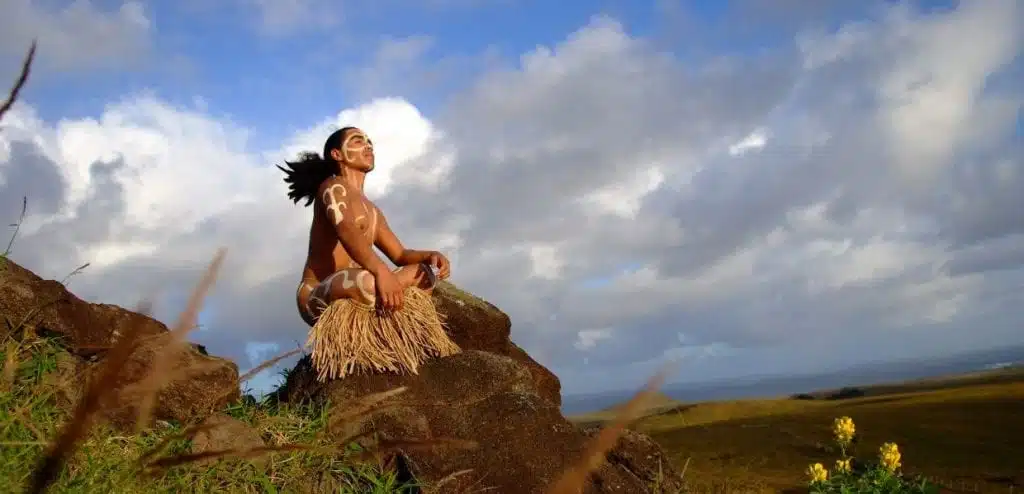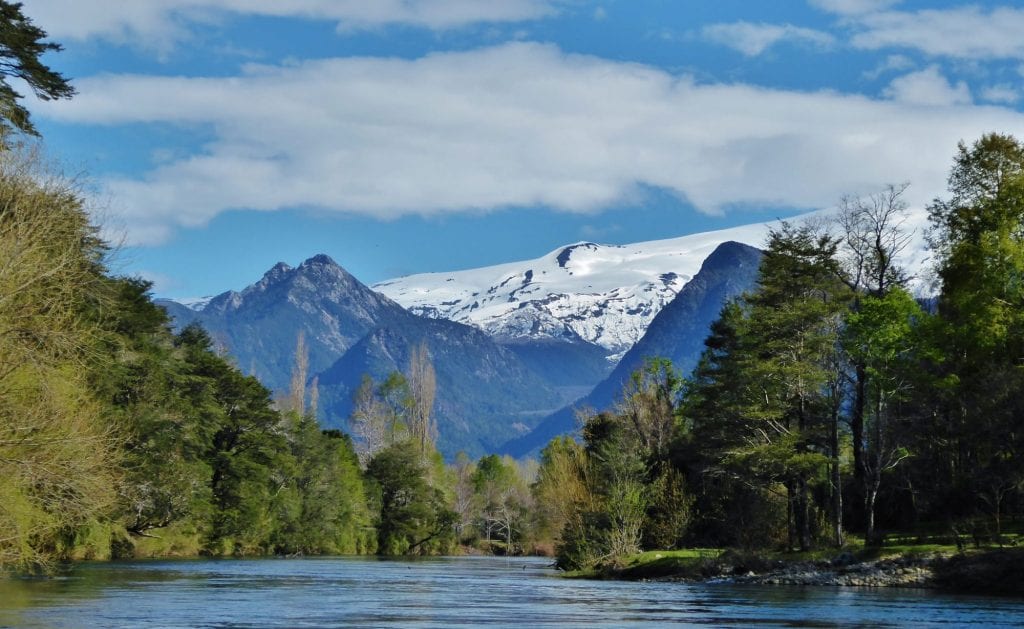HOW LONG SHOULD I SPEND IN CHILE?
Introverts and lovers of wild places might argue that a lifetime isn’t long enough, but to capture the gamut of Chilean experiences, we would recommend around 14 days. This will allow you time to enjoy the cities, visit the tundra and parks and island-hop to Rapa Nui.
WHEN IS THE BEST TIME TO VISIT CHILE?
Again, this depends on your wishes. If you are chasing the snow, winter (July – September) is optimal; if you wish to wander the wilderness of Torres del Paine, even summer can be quite brisk, while the expanses of the Atacama can be warm and very dry, but without being exhaustingly hot. Peak season is between December and February, and this usually gives you the greatest scope for your adventure.
WHAT CAN I EXPECT FROM ACCOMMODATION IN CHILE?
Accommodation is of an excellent standard, but also incredibly diverse, much like the climate and landscapes. Superb lodges, boutique residences, premium hotels and private villas can be found, but some flexibility is necessary. For example, if you are wishing to visit the wildernesses of Patagonia, you should understand that a large, fully-appointed hotel with a wide range of facilities is not going to be an option.
Fortunately, luxury comes in myriad forms and, as long as you are flexible with the style of accommodation, your comfort and satisfaction are guaranteed.
OTHER DETAILS:
Flights to Santiago are reasonable and regular, direct flights taking a little over 10 hours from either coast. Connecting flights can then take you to Chile’s specific regions, while overland transportation is available and highly advised for shorter trips to take in even more of the country’s wonderful scenery.
US citizens don’t require visas for entry to Chile, though other nations may. It is always best to consult your Travel Designer well ahead of time to confirm visa requirements. Likewise, inoculations aren’t generally required but a travel medicine specialist will be able to inform you fully.
Spanish is the national language of Chile and some basic Spanish will definitely be useful, particularly in the more remote areas. That said, English is widely spoken, particularly in the hospitality and tourism industries, your accommodation staff, guides and so on will likely be fluent in English.

